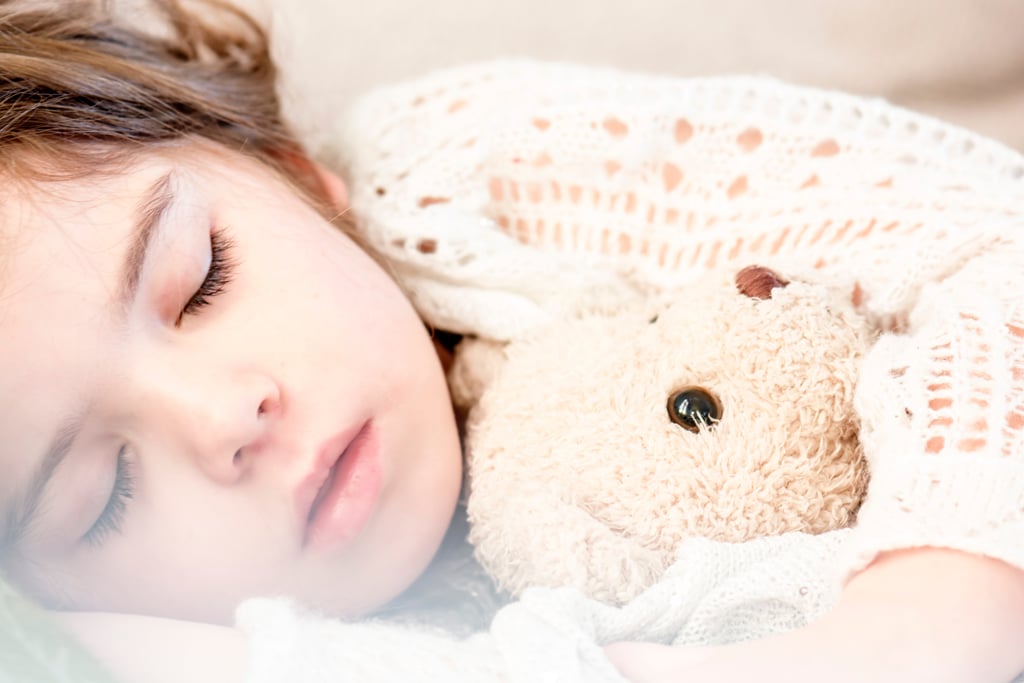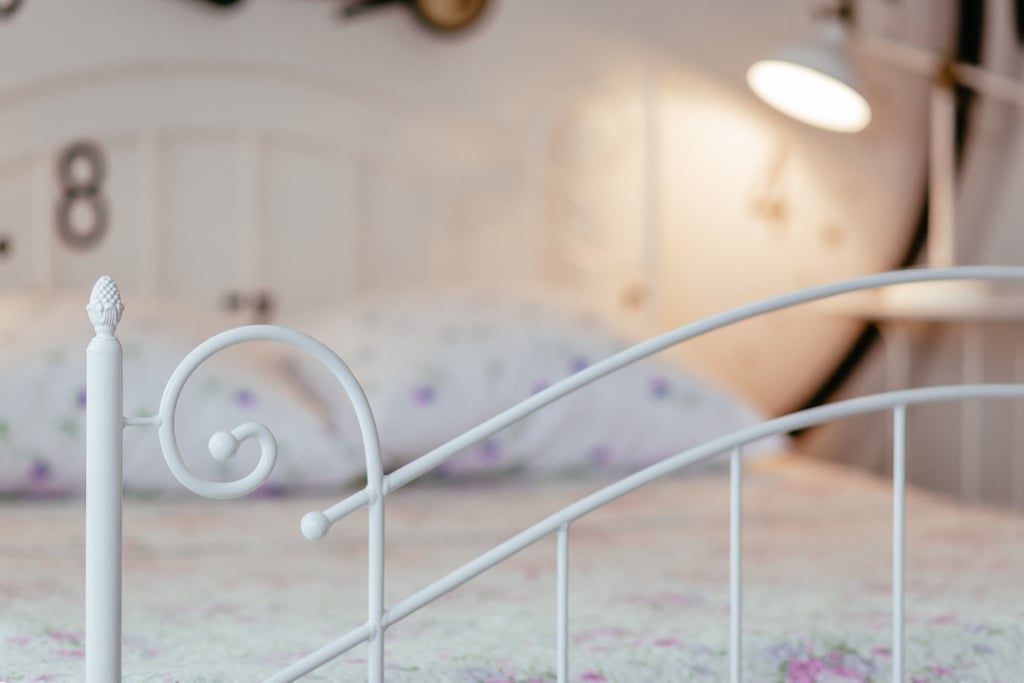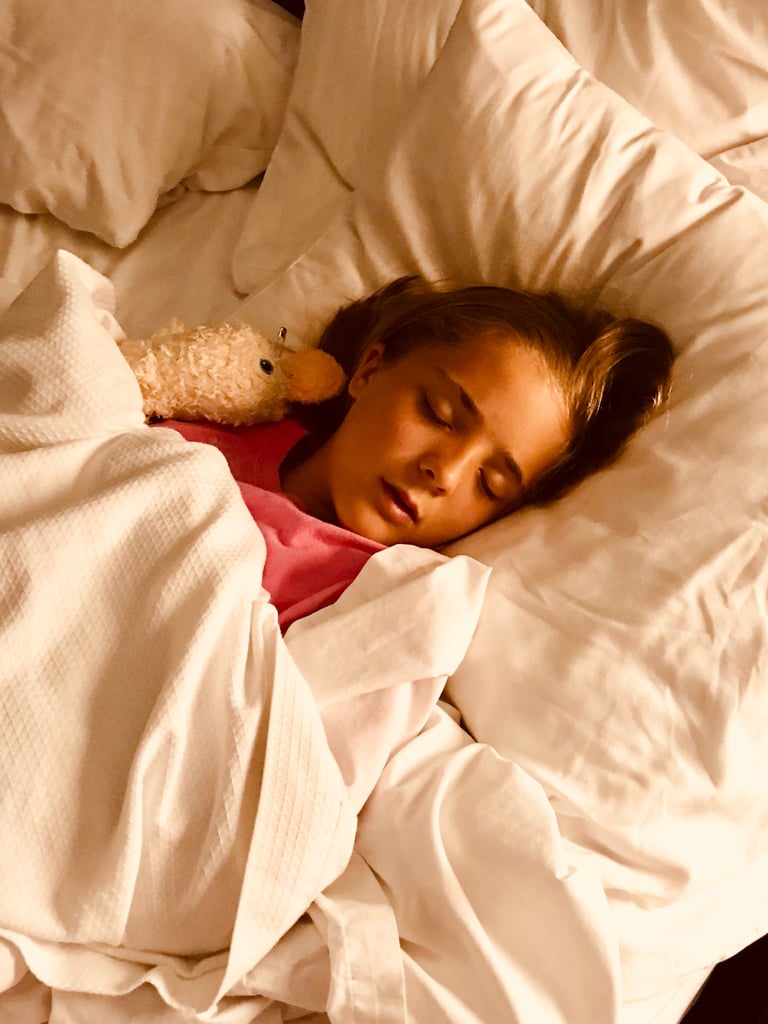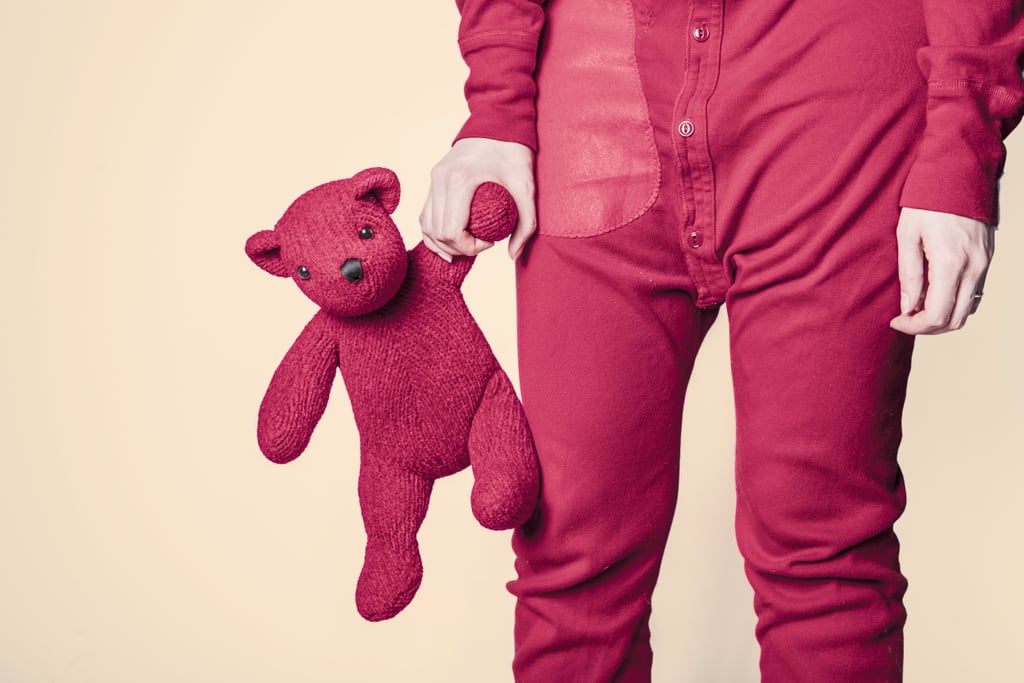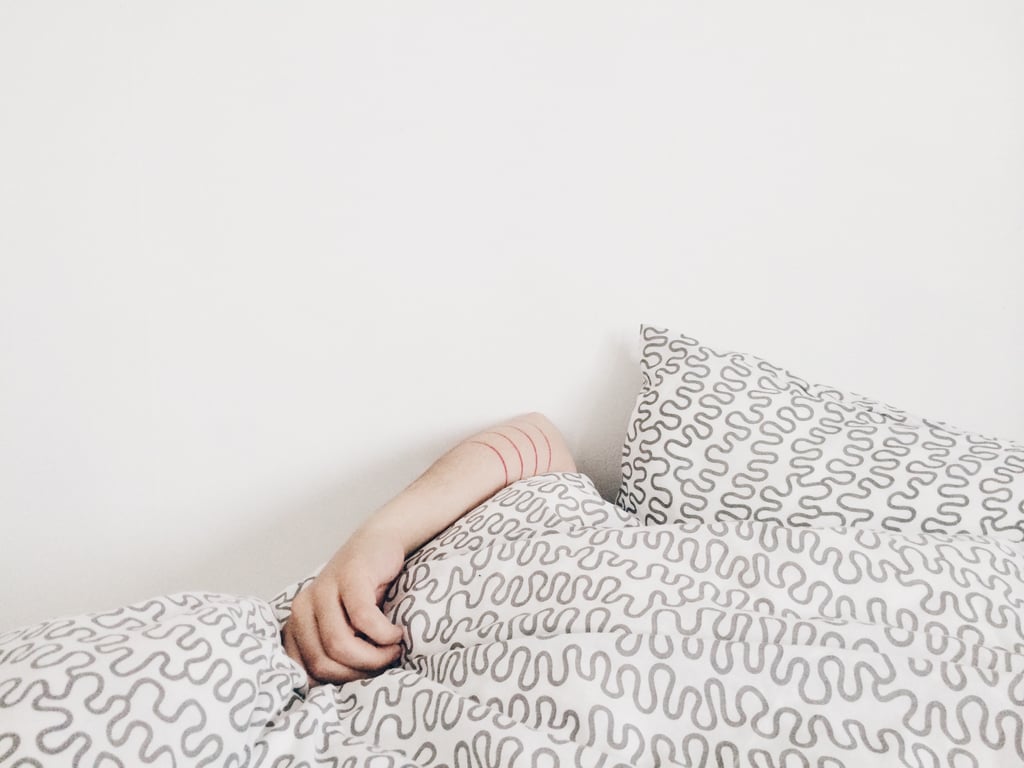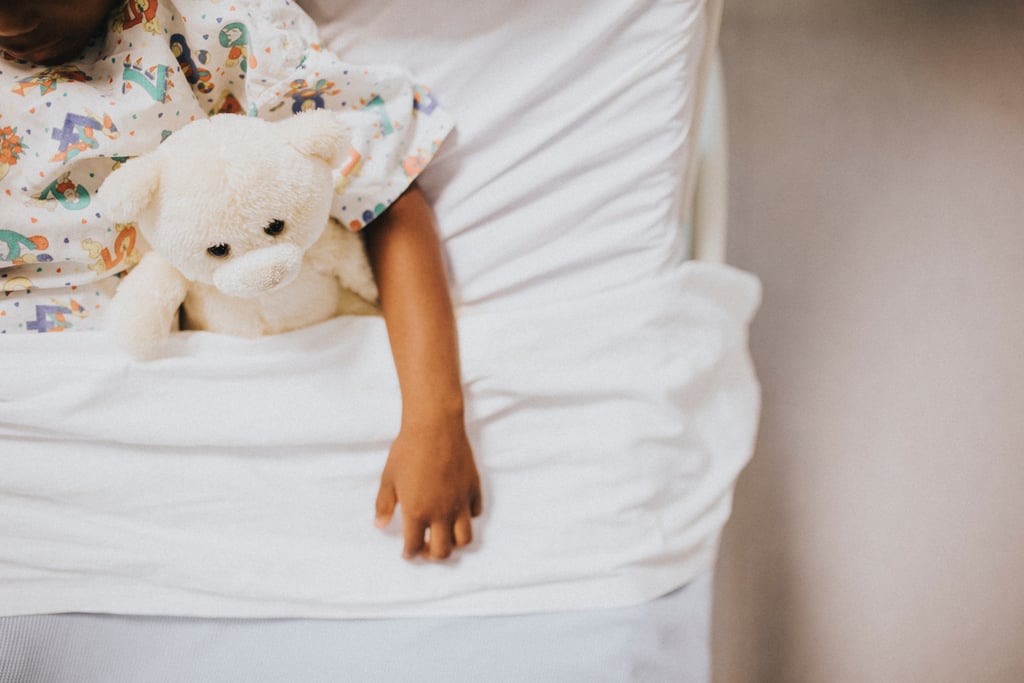A few years ago, my husband, always a troubled sleeper, began occasionally taking melatonin before bed [1], and lo and behold, he began sleeping more soundly and waking up feeling more well-rested than he had in years (though his former extremely sleep-deprived state might have had more to do with our slumber-averse babies than his own sleep troubles). Already melatonin believers [2] and fans of using natural remedies in general, we were totally on board to try a "natural" cough medicine for our kids that also included a small dose of melatonin. And you know what? Just as so many of my mom friends had predicted, it worked, too. We'd watch our children, especially our daughter, who'd inherited her father's sleep struggles, drift off with ease shortly after taking a dose.
From there, it was a short journey to occasionally giving a melatonin gummy to our kids when they were struggling to get to sleep. I bought a bulk jar of 50 when they were on sale and stored it on the top shelf of our bathroom storage closet, where little fingers couldn't reach it. Or so I thought.
I was proven wrong when my 5-year-old son, who is generally the best sleeper in our house, somehow got up to the top shelf, navigated the bottle's child-proofed top, and popped somewhere between 15 and 20 of the melatonin gummies in a single sitting. It was a serious overdose [4]. Considering how closely the chews resemble and taste like candy, I wasn't shocked that he mistook them for a hidden treat, but of course, I was totally freaked out by the amount he'd consumed. I called poison control to see if I should rush him to the hospital or prepare myself for him to be out for the next 14 hours of so. They basically told me not to worry about it. He'd be fine, and in fact, he didn't even take a nap that afternoon and slept normally that night.
Still, it was scary enough that I decided that, going forward, melatonin would only be used in forms that resembled medicine and administered when the kids were sick, not just resisting sleep. If you're currently giving your kids melatonin or are considering starting (you should always consult your doctor before you do), here's what you need to know.
What Is Melatonin?
Melatonin is the body's sleep hormone, which is naturally produced by the brain's pineal gland, and helps regulate sleep and wakefulness. Melatonin supplements are often used to help with a variety of sleep-related issues, including insomnia and jet lag. In the United States, melatonin is available over the counter; however, in many other parts of the world, it is only available with a prescription.
When Should I Consider Giving Melatonin to My Kids?
The short answer: only after talking to your child's pediatrician. While it's an over-the-counter medication, your child's sleep issues might be indicative of a problem that requires further medical intervention.
Is Melatonin Safe For Kids?
According to the National Institutes of Health, most studies show that short-term melatonin use is safe for kids [5] and produces little to no side effects. (Some lesser-reported side effects include drowsiness, headache, dizziness, or nausea). However, little research has been done about the long-term side effects of melatonin, and because of that, many doctors are wary to recommend melatonin for sleep issues in children.
How Often Can I Give My Kids Melatonin?
Not enough research exists about the long-term use of melatonin in children for it to be considered safe. Melatonin should only be used as a short-term sleep aid for your children.
What Can I Expect When I Give My Kids Melatonin?
Studies have shown that melatonin can help kids [6], especially children with ADD and those on the autism spectrum, fall asleep faster and sleep longer than they do without using the supplement. While that sounds great, remember that melatonin is not a long-term sleep solution for kids. If you're struggling with your child's bedtime restlessness or regular middle-of-the-night wake-ups, consider using other tools — bedtime routines, limited screen time, and so on — before using melatonin.
What Are Some Melatonin Alternatives?
According to Dr. Kimberly Lemke, a licenced child and adolescent clinical psychologist in Illinois who specialises in sleep issues, there are many things that parents can do to help their children fall asleep more easily.
"Ideally, you want your child to have been active throughout the day so that they have more of a sleep drive in the evening," she said. "It is important to create a comfortable environment for kids to sleep in. Things like noises, smells, and temperature matter for a child. Make sure that their room is not too warm and that they have either white noise or music if that is calming for them. Also, lavender is a soothing smell, so oil diffusers or lotions with lavender can help. If your child has any sensory issues, then you have to be very mindful of how each of their five senses is stimulated before bed."
"Bedtime routines are also key. Things like a walk before bed, story time, low lights, a warm bath, or taking a few minutes for deep breathing can make a world of difference in how successful they are at sleeping. Don't allow blue-light screen time on phones or tablets around bedtime for children. Remember that the key to healthy nighttime sleep is often reflective of daytime activities. More sunlight, more activities, more movement, and more stimulation during the day sets them up for a great night's sleep."

